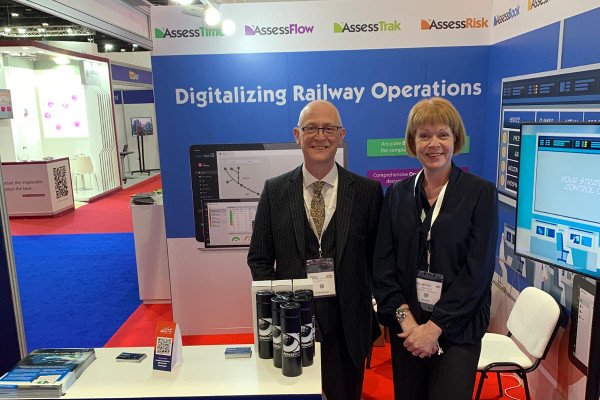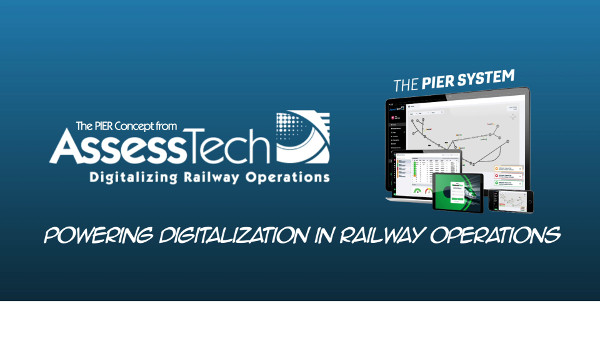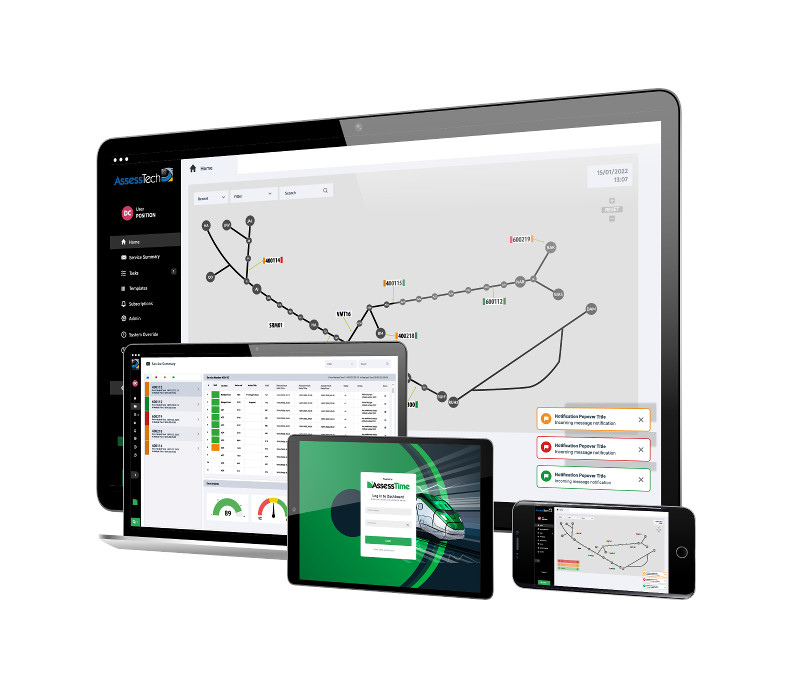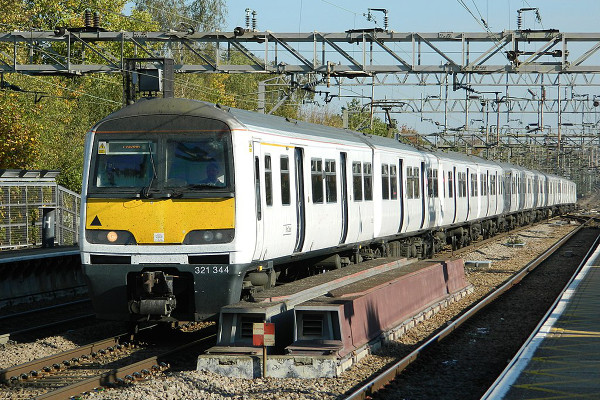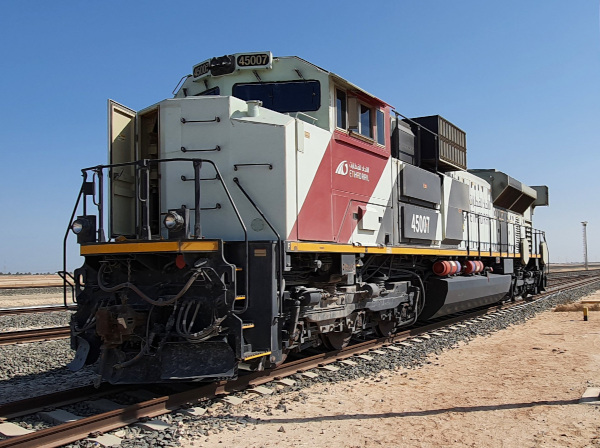Moving towards a digital operational infrastructure in the Middle East
Ahead of the Middle East Rail Show taking place in Abu Dhabi later this month, we caught up with Kirt Barooah, the Middle East Business Development Associate at AssessTech.
Kirt Barooah discuss his thoughts around what’s needed in the Middle East to help the rail companies deliver an integrated next generation network. In a previous article we explored how Countries in the Gulf Co-operation Council (GCC) are investing billions of US dollars in airports, sea ports, rail and other infrastructure in a bid to make the region a global transportation and logistics hub.
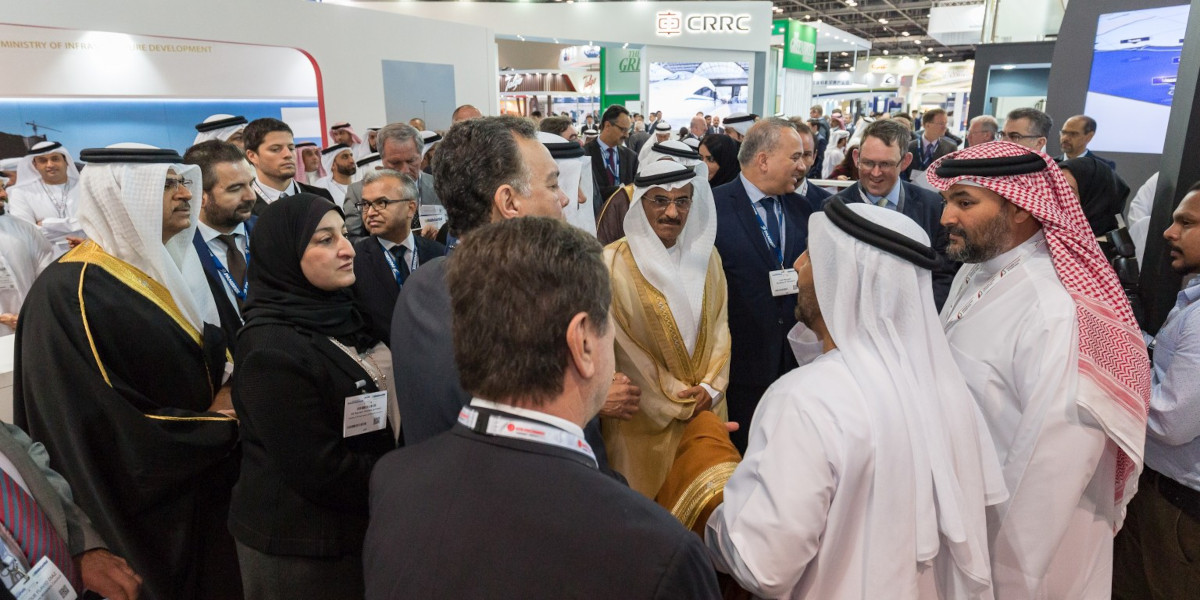
Saudi Arabia is the most advanced of the GCC members in heavy rail, followed by UAE, but GCC members are also adding focus to passenger services. Dubai already has a strong light rail (metro) and Saudi Arabia has six new metro lines shortly coming on line. Metro is also being considered or developed in Doha, Qatar and Abu Dhabi, UAE.
Investment is being made in infrastructure and engineering projects such as laying tracks, purchasing rolling stock and installing the very latest digital automated signalling systems. The latest cutting-edge technology is being installed with Saudi Arabia having the longest running level 2 ERTMS signalling system in the world. But where is the investment in the operational systems and data?
The heavy rail networks are still running on legacy operational systems, with phone and email central to communication. This results in out-dated manual processes, heavily reliant on people to harvest and react to information, leaving services prone to issues and delays when quick decisions are needed to manage events or incidents outside of planned operations.
Moving towards a digital operational infrastructure
A single, collaborative data platform would look at all aspects of operations and link all stakeholders into one database – reflecting the real status of the network. Using such a platform, strategic and tactical control of operations would be strengthened, train and crew resources managed more efficiently, network capacity maximized, and downtime and the impact of incidents minimized. Live business intelligence would give a high degree of visibility of operations to all stakeholders and collaboratively enable more informed business decisions to be made. For example, by making what appears to be a counter intuitive decision to delay the departure of a freight service, a conflict with an express passenger train will be avoided in a single section of track several hundred kilometres away and several hours downline. Collectively, such decisions will help maximise network running capacity and keep services moving.
The benefits of a collaborative data platform
An enterprise-grade, collaborative data platform will serve all stakeholders. It will not only provide vertical integration to the departments within an organisation, but also wider integration into the supply chain, extending the opportunity to improve productivity and reduce running cost to all stakeholders. Because each aspect of the operation will be closely monitored and recorded, it will offer the opportunity to improve quality of service. Trends and anomalies will easily be identified, which will in turn drive competency and training requirements for staff, providing a structured framework to upskill the workforce.
The safety regime will be greatly enhanced, as all processes and activities will be recorded and any deviation from a safe method of work easily identified. Incidents and actions will be recorded and as a result, a clear audit trail of events will be available for scrutiny and investigation.
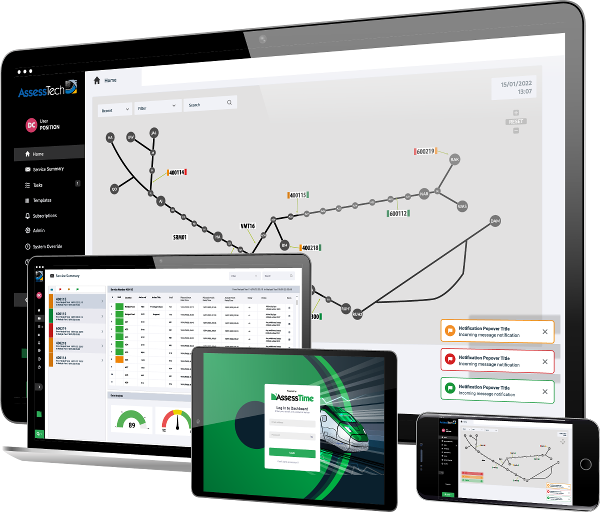
A fully digitalised rail network will offer end-to-end visibility and control of goods as they are transported, and any incidents will immediately be visible to key stakeholders, enabling a prompt reaction and controlled resolution.
Digitally recording the movement of every train will allow all services to be compared against an ideal baseline and will provide complete visibility of how teams and individuals perform. By tying this data into a competence system such as ACMS it will allow for targeted support and training, to help develop more efficient, economic and eco-friendly working habits.
The platform would also tie in staff rosters, enabling crews to be deployed efficiently while ensuring staff have the right skills and are compliant with health and safety regulations and guidelines.
A comprehensive, collaborative data platform offers a way to ensure the impact of events in GCC is minimized, services are optimised, and new opportunities more readily identified. Manual, paper-based activities would be replaced by instant analytics and complete visibility into the network though real-time dashboards and reporting, that would empower operators to make more informed decisions and increase the economic potential of rail infrastructure. All elements of the network, including planning, response to events, capacity, crew rostering and training would be tied together. ‘What if’ scenario planning would become easy to achieve and investments focussed to produce the greatest potential for growth.
As GCC members look to digitalisation and data as key strategic assets, a fully integrated data platform will bring data, people, and processes together to optimise operational efficiency, customer experiences, and profitability. Ultimately, this future vision of a fully digitalised rail network would enable GCC members to make the most of the natural resources and give the potential to drive growth through multiple areas of their economies.
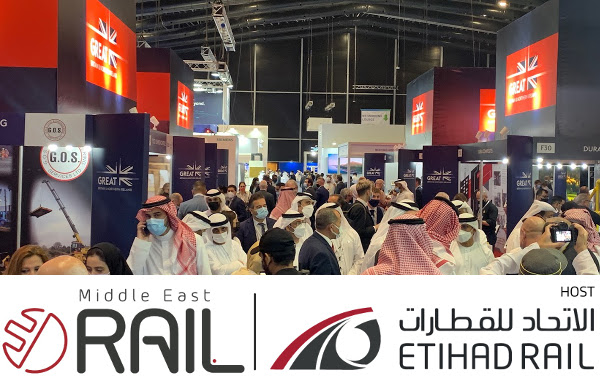
Middle East Rail runs from 17 – 18th May at the Abu Dhabi National Exhibition Centre in Abu Dhabi.
Find Kirt on the AssessTech stand at the British Pavilion.
If you are attending Middle East Rail and would like to arrange a time to speak with Kirt, contact him on kirt.barooah@assesstech.com


